S.Korea to invest $2.6 bn in quantum technology by 2035
Korean household names like Hyundai and Samsung are already using quantum technology in their businesses
By May 11, 2023 (Gmt+09:00)
MBK’s Korea Zinc takeover attempt to spur search for white knights


Korea Zinc, MBK face proxy war for zinc smelter


Korea Zinc shares skyrocket after buybacks in tender offer


Lotte to liquidate rubber JV in Malaysia, sell overseas assets for $1 bn


Samsung to unveil 400-layer bonding vertical NAND for AI servers by 2026


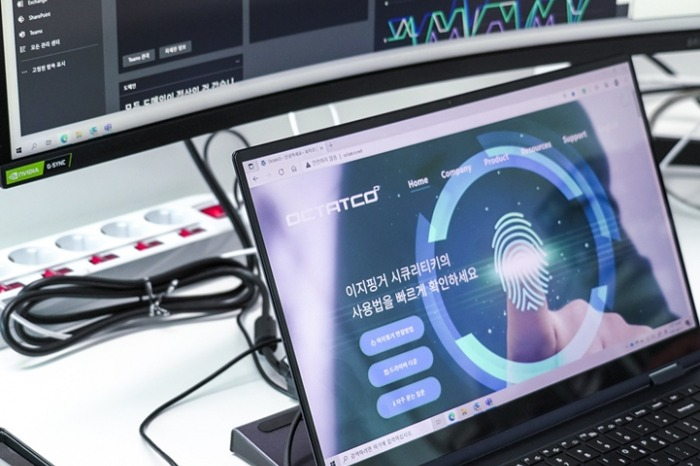
South Korea will spend 3.5 trillion won ($2.6 billion) on quantum science and technology development by 2035 in partnership with the country’s major conglomerates, which have been already exploring the commercial implementation of the promising technology touted to reshape the future of industry.
The public and private collaboration in shoring up the nation's quantum technology capabilities will be led by Korea’s Ministry of Science and ICT, Samsung Electronics Co., Hyundai Motor Co., SK Telecom Co. and LG Electronics Inc.
The latest public-private joint quantum technology investment commitment is more than 10 times bigger than the total quantum technology funding allocated by Asia’s fourth-largest country for the period between 2019 and 2023.
The massive fund will be used to reduce the gap in scientific and technological capabilities in quantum technology between Korea and global leader the US to 10% in 2035 from about 40% now.
Korea also aims to bolster its share in the global quantum technology market to 7.3% from 1.8% over the same period.
The money also will be used to groom research talent in the field to 2,000 from 300 and related startups to 100 from nine by 2035.
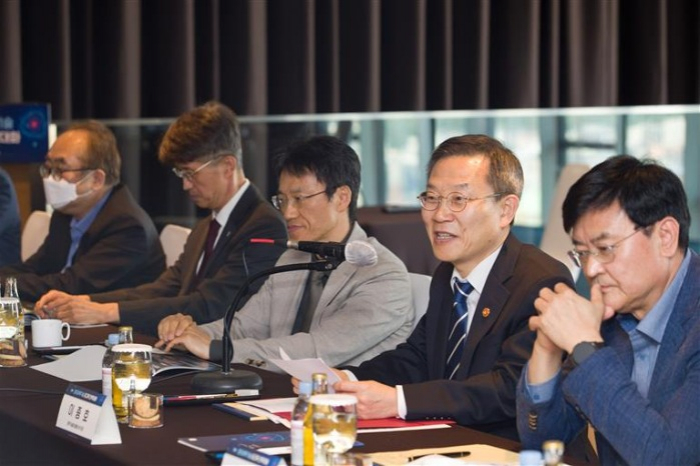
According to the national quantum technology development roadmap announced on Wednesday, the number of workers in the quantum science and technology field is expected to reach 10,000 from 953 over the cited period, and the number of private enterprises actively using the technology is projected to grow to 1,200 from 80, mostly those in the automotive, semiconductor and rechargeable battery sectors.
COMMERCIAL IMPLEMENTATION BY HYUNDAI MOTOR
Hyundai Motor has been using quantum computing to discover cheaper alternatives to platinum to catalyze the essential reaction required to run hydrogen fuel cells.
The Korean auto giant is the global leader in the hydrogen car market after selling 11,179 units of its hydrogen fuel cell passenger car NEXO last year, three times more than shipments of its rival Mirai by Toyota Motor Corp.
Compared with electric vehicles’ rapid ascent with global shipments of more than 8 million units, NEXO sales, however, were meager, and Hyundai Motor has been looking for various ways to bump up NEXO sales.
Finding a cheaper alternative to expensive platinum, a key material of a hydrogen fuel cell, is a must to spur hydrogen fuel cell car demand.
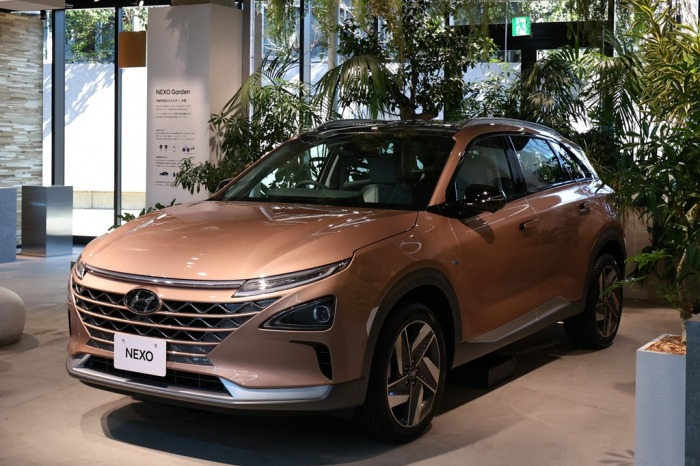
A hydrogen fuel cell needs a catalyst that can separate hydrogen molecules at the anode level into protons and electrons through the hydrogen oxidation reaction (HOR) and allow the electrons to move toward the cathode to create a flow of electricity.
The precious metal, which costs 50 million won (about $38,000) per kilogram, is currently used as the catalyst for the reaction, and Hyundai Motor is looking for cheaper substitutes, which can still guarantee high performance, with quantum computing, said Lee Jong-soo, vice president at Hyundai Motor.
The company, which has hired more than 10 quantum experts so far, has recently completed the development of a quantum algorithm, a specific quantum computing model designed to discover fuel-cell catalyst alternatives, said Lee.
It is working with IonQ Inc., a US quantum computing hardware and software developer and the only NYSE-listed quantum computing company, to unearth new catalysts. IonQ runs the Hyundai Motor-developed algorithm to find them.
Hyundai Motor pins high hopes on this method, which is expected to be more effective than supercomputers in discovering new catalysts after many trials.
SK TELECOM WITH QUANTUM CRYPTOGRAPHIC CHIP
SK Telecom, Korea’s top mobile carrier, has developed a quantum random number generator (QRNG) chip, which has been used in Samsung Electronics’ Galaxy Quantum series to enhance the security of personal information in smartphones. The quantum cryptography technology-powered smartphone series has sold more than a million units since its launch in 2021.
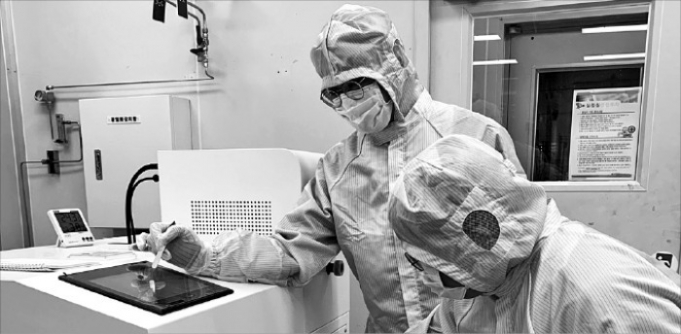
The telecom company late last year developed a new quantum security chipset, dubbed Q-KEV7, developed by combining its QRNG technology and the cryptographic communication semiconductor technology of Korea Computer & Systems (KCS).
This new quantum-enhanced cryptographic chip has been waiting for cryptographic module verification by Korea’s National Intelligence Service since early last month.
SK Telecom expects that this new quantum security chip will provide complete protection of data against wiretapping or hacking, and it will be widely used by financial institutions and in the national telecommunications network.
But the high price of a quantum key generator is an obstacle to its commercial use.
PROPRIETARY QUANTUM TECHNOLOGY DEVELOPMENT
The Korean private sector is expediting the development of proprietary quantum technologies.
Samsung Advanced Institute of Technology leads Samsung Electronics’ quantum technology research, with a focus on the development of the next-generation 1-terahertz semiconductor device with ultra-high frequency and ultra-low voltage properties.
The smartphone frontrunner has recently applied its latest quantum technology to the Galaxy Z Fold 4 smartphone that enables real-time image restoration with minimal power consumption.
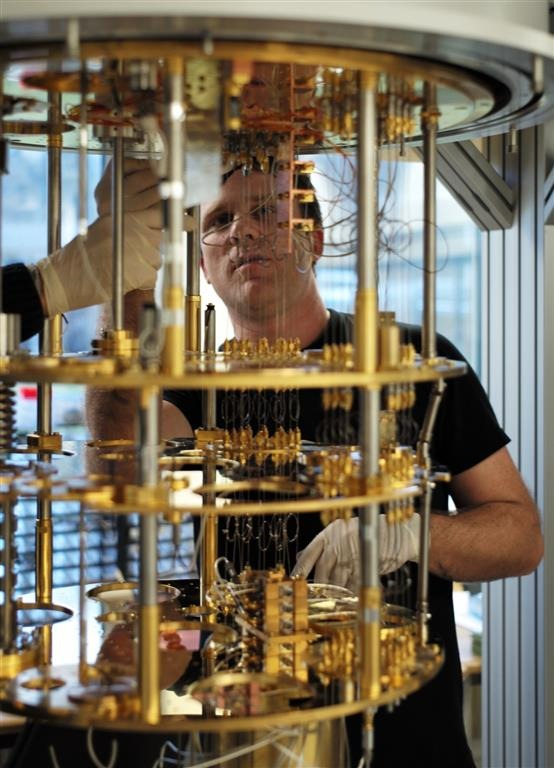
LG Electronics has joined hands with Google and Seoul National University to improve the energy efficiency of its electronic appliances with quantum computing. It has been working on the development of its original quantum internet technology since late last year.
Korean steel giant POSCO is also using quantum technology to discover alternative materials for battery cathodes.
Entities from the Korean government, academia and state-funded research centers will join the private sector to develop national proprietary quantum technologies that can be commercially used.
The government plans to develop 1,000-qubit quantum computers by early 2030 and build a nationwide quantum communications network.
It also aims to commercialize quantum internet by mid-2030 and develop original quantum sensing technologies to apply them to the bio sector by 2027, the defense sector by 2031 and all other industries by 2035.
Write to Jin-Won Kim at jin1@hankyung.com
Sookyung Seo edited this article.
-
 Tech, Media & TelecomSK Square’s Swiss unit joins EU quantum satellite project
Tech, Media & TelecomSK Square’s Swiss unit joins EU quantum satellite projectMar 09, 2023 (Gmt+09:00)
1 Min read -
 Tech, Media & TelecomExperts criticize Seoul's quantum computer development efforts
Tech, Media & TelecomExperts criticize Seoul's quantum computer development effortsAug 12, 2022 (Gmt+09:00)
3 Min read -
 Future mobilityHyundai Motor expands partnership with quantum computing firm IonQ
Future mobilityHyundai Motor expands partnership with quantum computing firm IonQApr 20, 2022 (Gmt+09:00)
3 Min read -
 Quantum computingKorean telecom firms expand commercial use of quantum cryptography
Quantum computingKorean telecom firms expand commercial use of quantum cryptographyJun 09, 2021 (Gmt+09:00)
5 Min read


